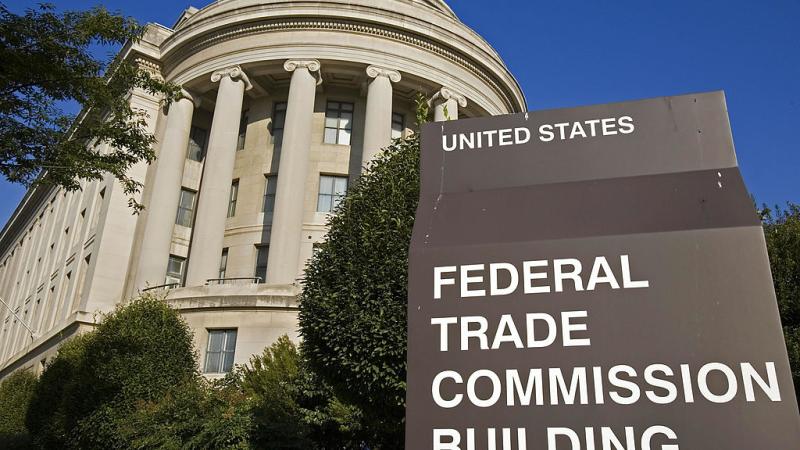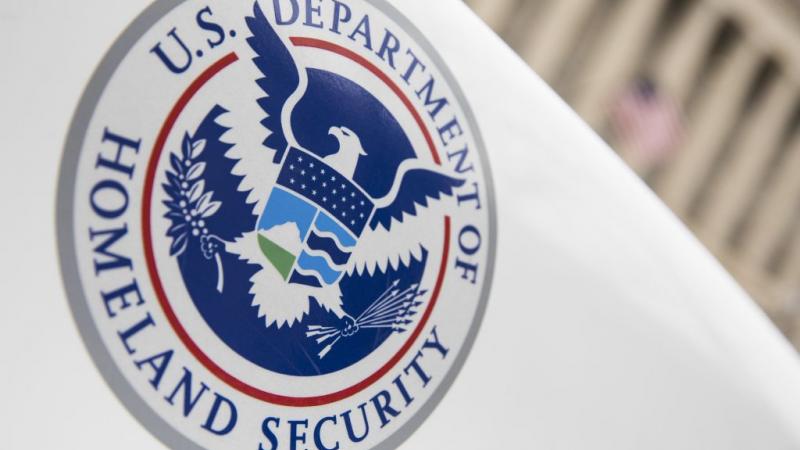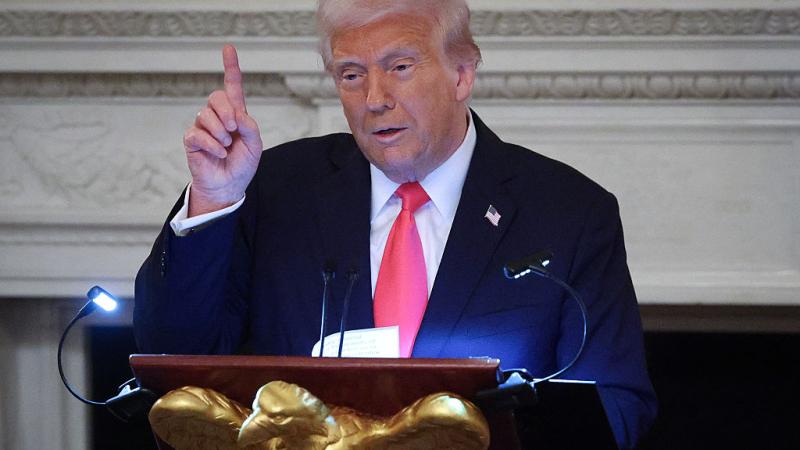In stunning reversal, judge tosses conservative professor's free speech suit based on peer's ordeal
Historian Daymon Johnson's First Amendment retaliation lawsuit against California's Kern Community College District got the green light in November, then a U.S. district judge rejected the finding and recommendations.
A professor who took over a right-leaning campus think tank after his predecessor faced termination for activities related to the Renegade Institute for Liberty got bad news from a federal court: Come back when you've actually been punished for wrongthink.
It was a stunning reversal for historian Daymon Johnson, whose First Amendment retaliation lawsuit against California's Kern Community College District, alleging far-reaching chilling of his speech, received the green light in November, prompting an emergency meeting of the trustees.
U.S. District Judge Kirk Sheriff rejected the findings and recommendations by Magistrate Judge Christopher Baker and dismissed Johnson's lawsuit for lack of legal standing.
He hasn't adequately alleged "actual or imminent" injury from KCCD's enforcement of state and system codes against Johnson, including "diversity, equity and inclusion competencies," based on his "political and social" views, the Sept. 23 ruling says.
Johnson's pre-enforcement challenge is based on how KCCD treated fellow Bakersfield College historian and former RIFL leader Matthew Garrett, who agreed to leave in July with $2.4 million and a clean record.
The parties settled ahead of a California administrative law judge's ruling on Garrett's planned termination on charges of "dishonesty" for disagreeing with colleagues on diversity issues and "unprofessional conduct" for questioning the data behind a "racial climate task force."
Garrett sued with RIFL member and BC historian Erin Miller when both faced firing three years ago, accusing KCCD of disingenuously rebranding their criticism of its spending on "social justice" initiatives as a false accusation of misappropriation against colleagues at BC's competing Social Justice Institute, cofounded by KCCD Chancellor Sonya Christian.
Defendant Christian actually praised all three historians in a 2015 blog post as BC president, four years before officials deemed two of their comments at a 2019 RIFL event on the "intellectual origins of campus censorship" as "unprofessional conduct" deserving termination.
A docket entry Sept. 24 shows Miller remains in the suit while claims were withdrawn against Vice President Billie Jo Rice, whom Garrett previously accused of sharing confidential files with his detractors and trying to stop his promotion through a racial double standard.
Judge Sheriff is new in town, appointed by President Biden in February. The now-lame duck president appointed Sheriff's predecessor, Judge Ana de Alba, to the 9th U.S. Circuit Court of Appeals two days after Baker's report and recommendations to her.
Magistrate judges like Baker are appointed by district judges rather than presidents. Sheriff's ruling dismissed Johnson's suit without prejudice, meaning he can file an amended complaint with new alleged facts.
Johnson's lawyers at the Institute for Free Speech nonetheless immediately appealed the ruling to the 9th Circuit, meaning de Alba could stay involved in the case if she's chosen for a three-judge panel hearing the appeal. IFS told Just the News it was too busy this week to comment on the ruling.
“The District is pleased with the Court’s ruling," KCCD spokesperson Norma Rojas wrote in an email. "The District values the First Amendment rights of its faculty, students, and community members and will continue to defend this matter."
Sheriff had a very different interpretation than Baker of the district's actions and of several California education code provisions, the chancellor's DEI competencies and Policy 3050, a district ethics code. Johnson said they were unconstitutional as "impermissibly vague," viewpoint-discriminatory and compelled speech.
The fact that KCCD exonerated Johnson after a five-month investigation into his management of RIFL's Facebook page, prompted by a longtime campus foe of RIFL, shows he cannot "establish that he faces a credible threat of enforcement for similar future conduct," Sheriff said, contrary to Baker's findings that the investigation itself shows the continuing threat to Johnson.
"Johnson alleges that he made a number of the Facebook posts that KCCD cited in Garrett’s termination notice as examples of Garrett’s unprofessional conduct" but didn't specify which were Johnson's, and this doesn't show "Johnson’s conduct is proscribed by the statutes," Sheriff wrote. (Johnson later outsourced RIFL Facebook duties to retired faculty to avoid punishment.)
It's not enough that Johnson intends to "some day" write posts or recommend books on "cultural Marxism" – a phrase flagged as "hate speech" in KCCD's termination notice to Garrett, which prompted Johnson to stop referring to the term altogether – because he has not "offer[ed] the whom, when, where, or under what circumstances," Sheriff wrote.
Garrett's termination letter is full of alleged "conduct in which Johnson has not stated any intent to engage," including "demonstrably false and misleading" claims against colleagues and BC, "knowingly violating campus COVID-19 policies in 2021 with respect to an event" and "threatening and attempting to intimidate a KCCD trustee," the judge said, quoting the letter.
It was KCCD Vice President John Corkins, however, who used violent language at a 2022 board meeting following public comments dominated by accusations of racism and harassment against RIFL-associated faculty.
He said, "We have to continue to cull" such faculty like animals in "my livestock operation, and that's why we put a rope on some of 'em and take 'em to the slaughterhouse."
Corkins, who runs an eponymous agribusiness, later apologized for the remarks.
"Johnson and Garrett are not similarly situated for purposes of establishing a credible threat of enforcement" of state education code provisions on grounds for termination and suspension, including "immoral conduct," Sheriff said.
Johnson has not received a "specific warning or threat to initiate proceedings against him" under those provisions, according to the judge, dismissing Corkins' remark about culling, the investigation of his Facebook management, and then-BC President Zav Dadabhoy's "holiday greeting" to employees as too vague to be threatening and at most "implied threats."
Dadabhoy's email cited a California DEI regulation and implied RIFL faculty were interfering with BC's legal obligations, but it simply reminds faculty of California "diversity goals and affirmations," Sheriff said.
Corkins didn't name RIFL or Johnson, the judge emphasized without mentioning the complaints against RIFL at the meeting preceding Corkins' comments about "five percent [of faculty who are 'bad actors'] that we have to continue to cull."
"If anything, the outcome of the investigation" for his management of the Facebook page "confirmed that Johnson’s ability to express his opinions is protected," Sheriff said.
Finally, the judge noted that Johnson didn't challenge any policy at BC or explain how the "customs, policies, or practices" of his own college relate to Johnson's claims. He denied Johnson's motion for preliminary injunction as moot.
The Facts Inside Our Reporter's Notebook
Videos
Links
- predecessor faced termination for activities related
- Daymon Johnson, whose First Amendment retaliation lawsuit
- received the green light in November, prompting an emergency meeting
- findings and recommendations by Magistrate Judge Christopher Baker
- Matthew Garrett, who agreed to leave in July with $2.4 million
- "dishonesty" for disagreeing with colleagues
- "unprofessional conduct" for questioning the data
- both faced firing three years ago
- Defendant Christian actually praised all three historians in a 2015 blog post
- 2019 RIFL event
- "unprofessional conduct" deserving termination
- Magistrate judges like Baker are appointed
- Policy 3050
- KCCD exonerated Johnson after a five-month investigation
- RIFL's Facebook page,
- John Corkins, however, who used violent language















